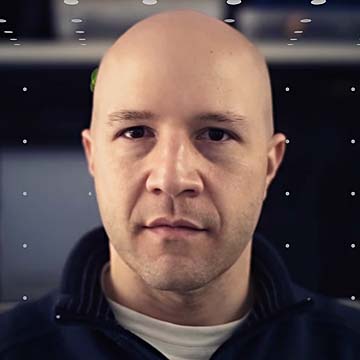Farsight display
Combining images that are seen on and through the display (combined real and virtual reality)
The aim of this project is to create and demonstrate a dual-mode display that has both a conventional (LCD or OLED) display and a virtual display. A virtual display is one in which the image is seen by looking through the display and not at the surface of the display. The virtual image appears at a distance and so the virtual display acts like a window onto a distant scene.
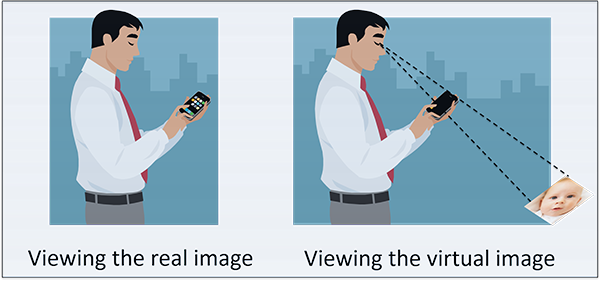
One of the advantages of this approach is that, when appropriate, content can be displayed at a distance thus permitting relaxed viewing, especially relevant on small devices. We see the potential applications for this in areas such as videoconferencing and augmented reality; the former benefits by virtue of the video correspondent appearing at a distance, rather than being ‘stuck’ on a flat screen and the latter benefits by the augmented reality content appearing at a distance, as the real physical scene would be.
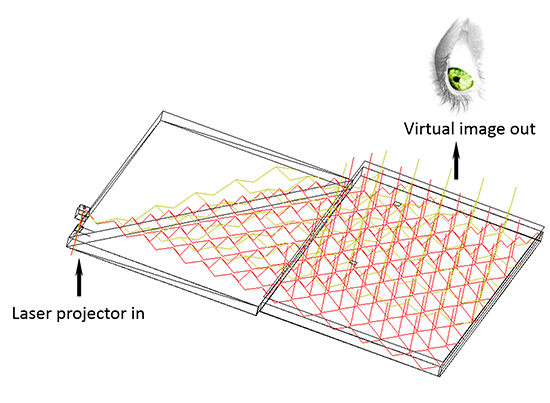
The physical implementation is a Surface Pro display overlayed with a diffractive pupil expander consisting of a waveguide plate and three diffraction gratings. The pupil expander is illuminated with a compact laser projector coupled directly into the waveguide. We believe that this architecture will enable a thin form factor to be realised, as required for today’s portable devices.
The images below were captured with the camera’s focus on the LCD, halfway between the LCD and virtual display depths, and at the virtual display depth.
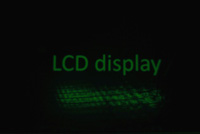
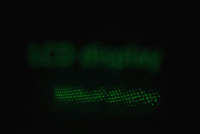
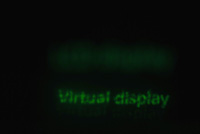

 Applied Sciences
Applied Sciences

